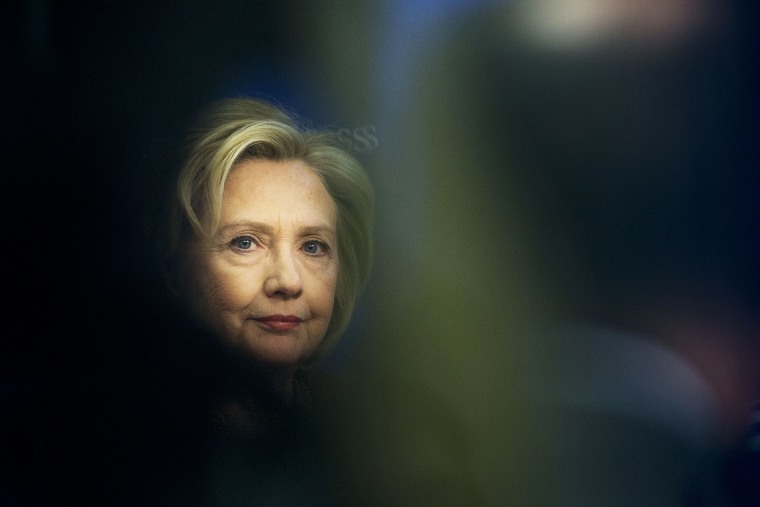If Hillary Clinton is to succeed in her second quest for the presidency, she’ll need to at least come close to matching President Obama’s performance with the groups that made up his most enthusiastic base: minorities and young voters. So over the next year and a half, expect to see Clinton continue to denounce the wave of restrictive voting rules that has often targeted non-whites and students.
RELATED: New battles take shape in the ‘war on voting’
Already, the former secretary of state—sometimes criticized by progressives as overly cautious—has been relatively outspoken on the subject of voting rights. In a forceful 2013 speech to the American Bar Association (ABA), Clinton slammed the Supreme Court’s Shelby County ruling that year weakening the Voting Rights Act (VRA), called on Congress to fix the landmark law and urged the Obama administration to step up enforcement of voting rights cases.
Clinton’s solid record on voting rights suggests an emerging reality of modern partisan politics: With Republicans benefiting from a smaller electorate and Democrats from a larger one, vocally opposing strict voting rules and pushing to make voting easier have essentially become non-negotiable positions for any Democrat with national aspirations. That's something Obama learned last year, when he responded to pressure from civil rights groups and others by forthrightly condemning Republican-led voting restrictions after, for a time, seeming to downplay the issue.
The ABA speech was one of a series of policy addresses Clinton gave in the summer and fall of 2013 as she began laying the groundwork for her candidacy.
“Anyone who says that racial discrimination is no longer a problem in American elections must not be paying attention,” Clinton said then, in a pointed response to Chief Justice John Roberts’s claim that a full-strength VRA is no longer needed because of the progress made by the south since the civil rights era. And she mocked the “phantom epidemic of voter fraud” that conservatives have used to justify voting restrictions.
RELATED: Obama open to mandatory voting
Clinton singled out Texas’s strict voter ID law and North Carolina’s sweeping and restrictive voting law, both of which were advanced in the wake of the Supreme Court’s decision. The North Carolina law, she said, “reads like the greatest hits of voter suppression.”
“Our government cannot fully represent the people unless it has been fairly elected by them,” Clinton said in closing.
The only awkward note came toward the end, when, in an apparent slip of the tongue, Clinton referred to the legendary civil rights activist Medger Evers, murdered in 1963 for registering southern blacks, as “Medger Evans.”
The speech was far from Clinton’s first foray into the voting rights arena. As a senator in 2005, Clinton introduced a bill that would have hugely expanded access to the ballot, in the wake of a 2004 presidential election in which massive wait times plagued minority and student areas in Ohio, a pivotal presidential swing state. Among other steps forward, Clinton's measure would have made Election Day a public holiday, established early voting and same-day voter registration nationwide and required that states take steps to reduce wait times.
In fact, Clinton’s first serious experience of presidential politics involved registering Hispanic voters for George McGovern’s 1972 campaign in Texas’s Rio Grande Valley—an area that remains a hot-spot for efforts to expand the electorate.
President Bill Clinton, too, has a strong record on the issue. Four months after taking office in 1993, he signed the National Voter Registration Act, which vastly expanded access to voter registration opportunities, especially for poor and non-white Americans.
In a video last year announcing the Democratic Party’s new Voter Expansion Project, the former president called on supporters to start playing offense by working for “more and easier voting.”
